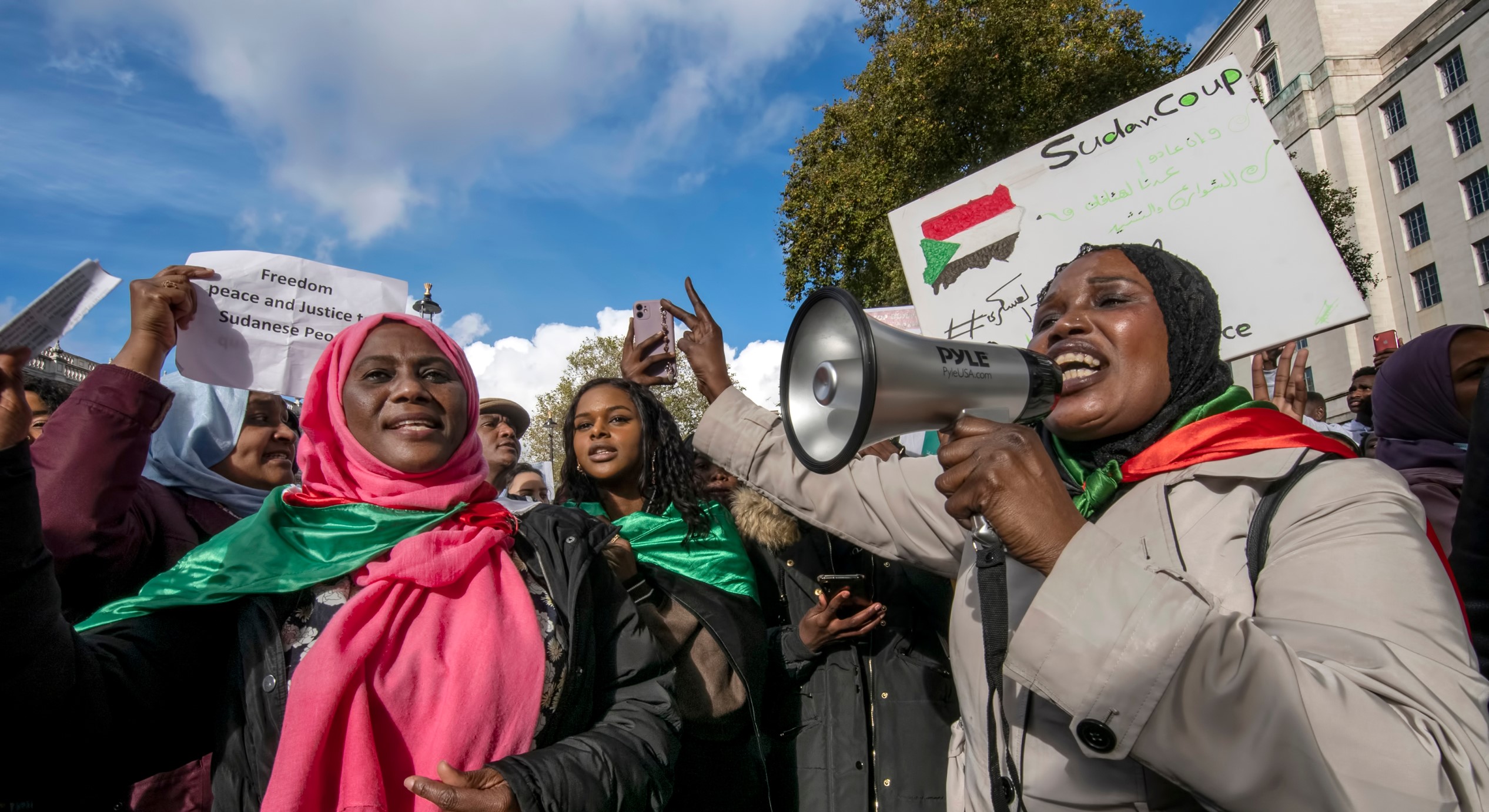
Sudan War: Rape from a Weapon of Identity to a Criminal War - Neimat Koko Muhammad
Sudan War: Rape from a Weapon of Identity to
a Criminal War -
The Sudan war that erupted on April 15, 2021, is entering its second year, carrying with it all kinds of human rights violations, including destruction, death, displacement, and asylum in neighboring countries. Nevertheless, sexual violence and the use of the "weapon of rape" had been one of this war's primary tools. Cases attributed to the Sudanese Armed Forces (SAF) and allied groups have been documented. However, it was found that most cases of sexual violence and the use of the "weapon of rape" were committed by the Rapid Support Forces(RSF), specifically in Khartoum State, Greater Darfur, and Al-Jazeera, as part of a pattern of terrorizing and punishing civilians because of their supposed connections with the other party, and to suppress opposition forces.[1]
Although sexual violence, especially the use of the "weapon of rape," is a new development in the history of modern Sudan despite the wars that have persisted since 1955. This phenomenon had not been documented historically. Rape was considered a type of security lapse punishable by the Armed Forces Law, despite the political and social dynamics that were among the causes of this war.
However, the Darfur war, starting in 2003, was characterized by a tribal and ethnic dimension. It constituted a qualitative shift in the history of wars and conflicts in Sudan. It used "rape as a weapon of identity" in the dynamics of ethnic conflict supported by Arab militias with ethnic extensions from West Africa, known as the Janjaweed forces, against some other tribes and ethnicities. Thus, sexual violence, especially "rape," was used as a weapon in daily battles in Darfur. Many women and girls were killed even during the transitional period.[2] The use of "rape as a weapon of identity" as a tool of daily battles is a clear indication of the violation of "tribal honor," represented by "women's honor" in local communities. It was a turning point in the history of Sudanese women, as women and girls were exposed to significant and multiple challenges that directly affected their safety and the progress of the human rights system. The conditions faced by women and girls in conflict areas became tragic.
The April 15, 2021 war was in the context of the conflict between the Sudanese army and the RSF. It had political, economic, and social dimensions. In light of regional economic polarizations, the use of sexual violence and the "weapon of rape" as a means of terrorism and humiliation of local communities appeared again in all regions of Sudan with its multiple geographical areas. In particular, these acts took place in areas invaded by the RSF and were utilized tragically in eastern Al-Jazeera in October 2024. Sudanese women paid a heavy price for this war that continues to this day on women's bodies.
The geographical expansion of this criminal war to include many parts of the country has led to new and multiple waves of sexual violence, including sexual slavery, kidnapping, trafficking, forced marriage, with multiple marriages of men with one woman or girl, the widespread use of the "weapon of rape," and its destructive impact on the social fabric of families and local communities.
Reports
with reliable statistics for the period from April 15, 2021, to April 30, 2024,
identified 448 rape cases that reached hospitals and were documented medically.[3] The number of children's
cases reached 131, representing
Reports also indicated the documentation of 118 cases of forced disappearances, including 118 men and 10 women, out of 1100 cases since the conflict began in April 2003.[7] The low number of documented cases of women’s disappearance is due to several factors, including the complex nature of this crime, which often includes additional violations such as harassment or rape, increasing their families' fear of social stigma. Some families hesitate to talk about cases of women’s disappearance for fear of being shamed, which complicates monitoring processes and limits the accuracy of documentation. Young men represented the largest share of the disappeared.
The war in Sudan continues with the multiple use of all weapons of mass destruction. Human rights violations are on the increase, including against the right to life. Women and girls in the villages of East Al-Jazirah preferred to drown themselves into the bottom of the Nile instead of using their bodies as tools of war or being raped in front of their children and fathers, especially since 47 cases of rape have been documented.[8]
From a disaster to a to a "criminal war," the war in Sudan must be examined in the courts of justice and criminal trials, based on international and regional charters and treaties. These crimes do not expire with time, no matter how long they last. However, there are practical challenges when it comes to the use of sexual violence and the weapon of rape. They are:
1- Difficulty in monitoring and documenting information, especially
in local communities.
2- Lack of health and psychological support for survivors, which is
an absolute necessity now.
3- Medical and psychological difficulties for pregnant women who
are survivors of rape.
4- Legal difficulties in following up on procedures related to
pregnancy and abortion, especially in the absence of judicial and legal
institutions.
5-
Challenges in obtaining the
necessary medications to treat sexually transmitted diseases, AIDS, and
hepatitis as a result of the destruction of all health institutions.
Recent publications

